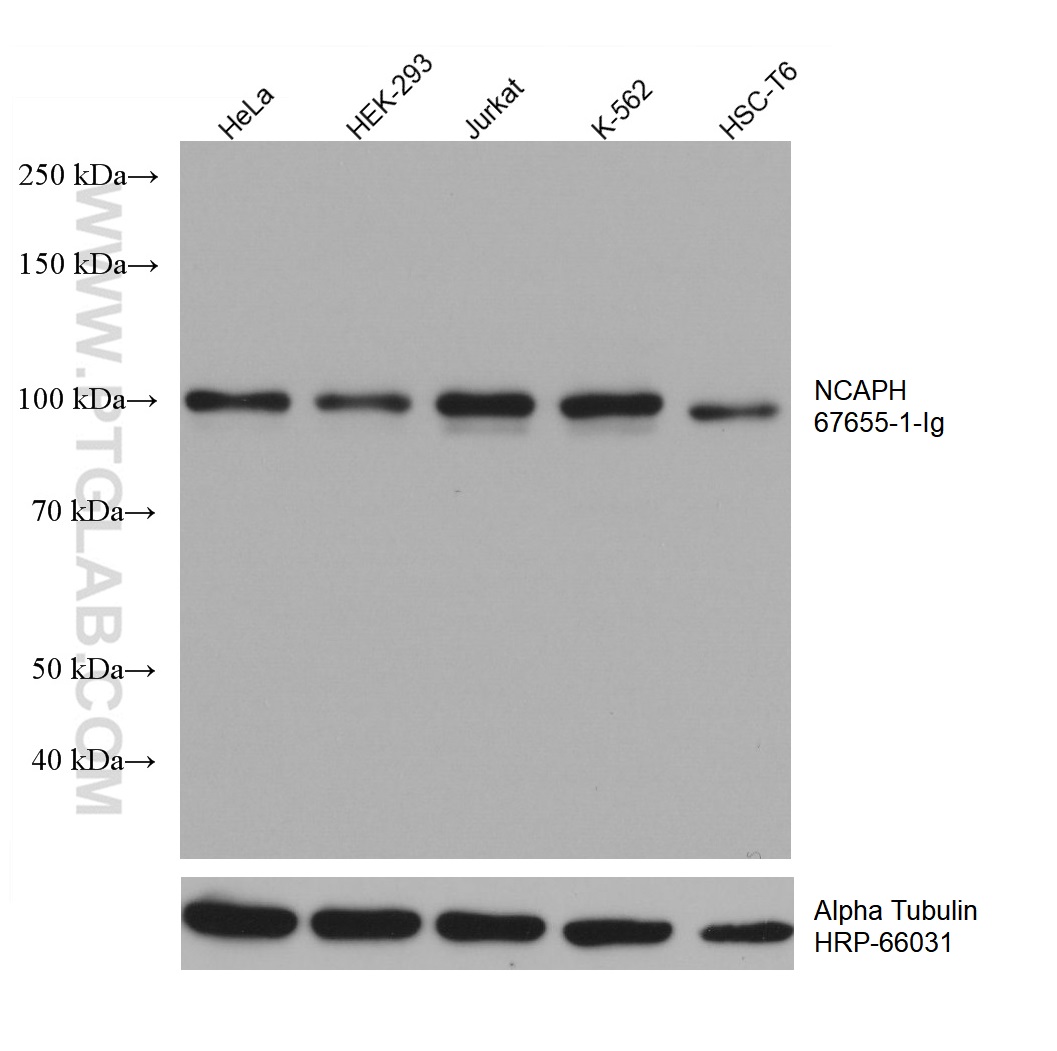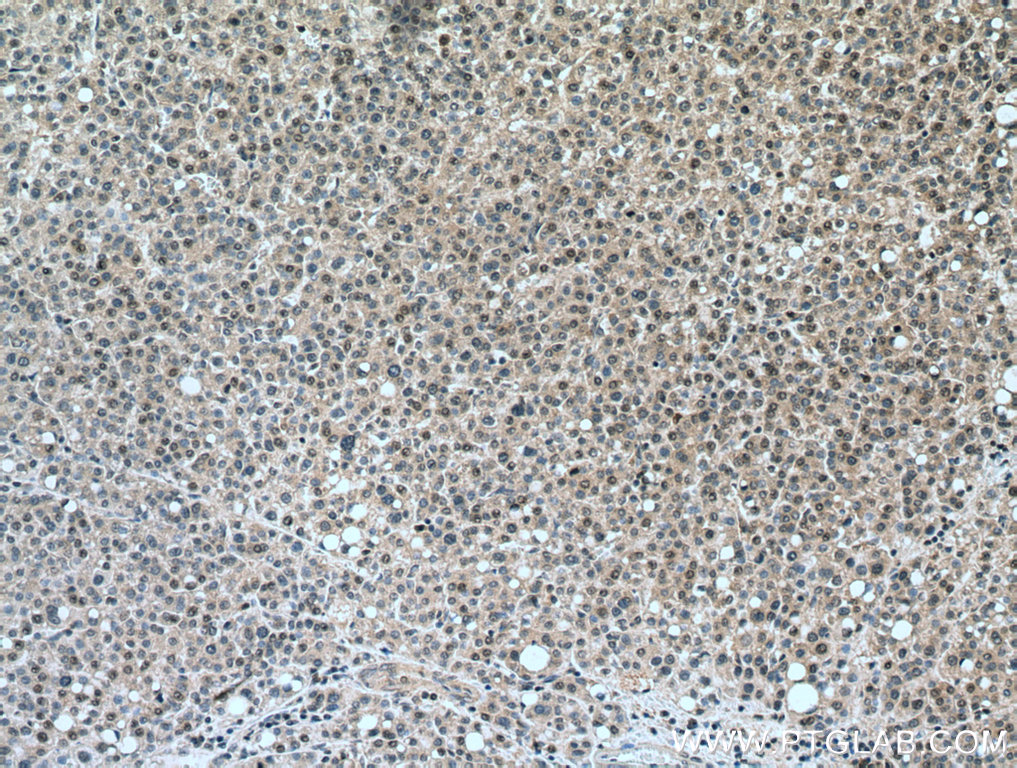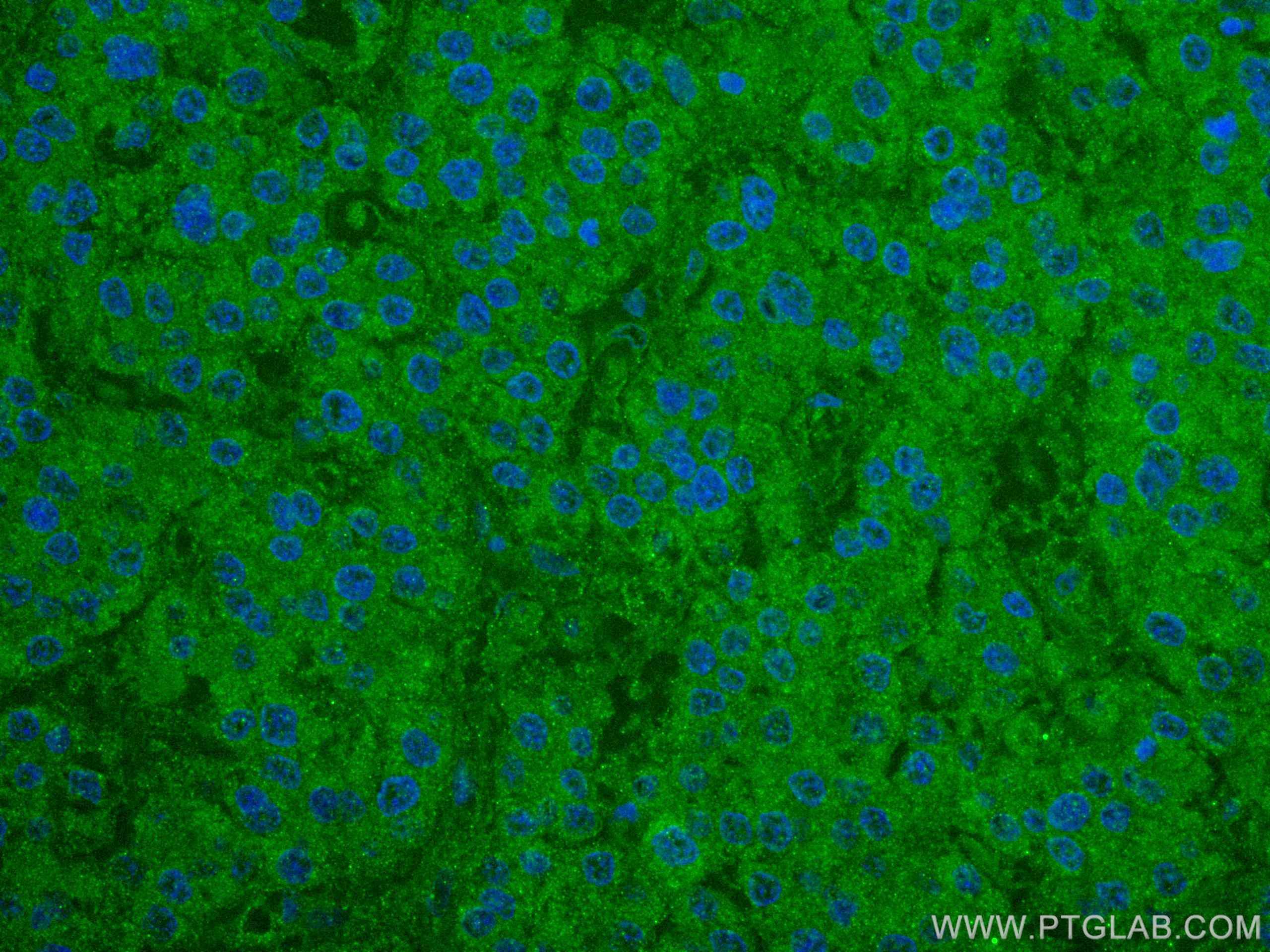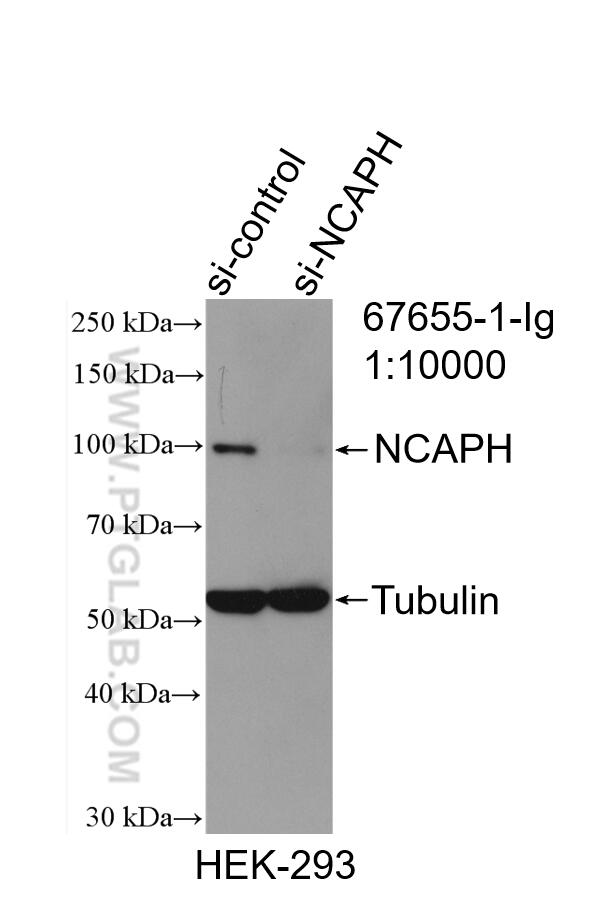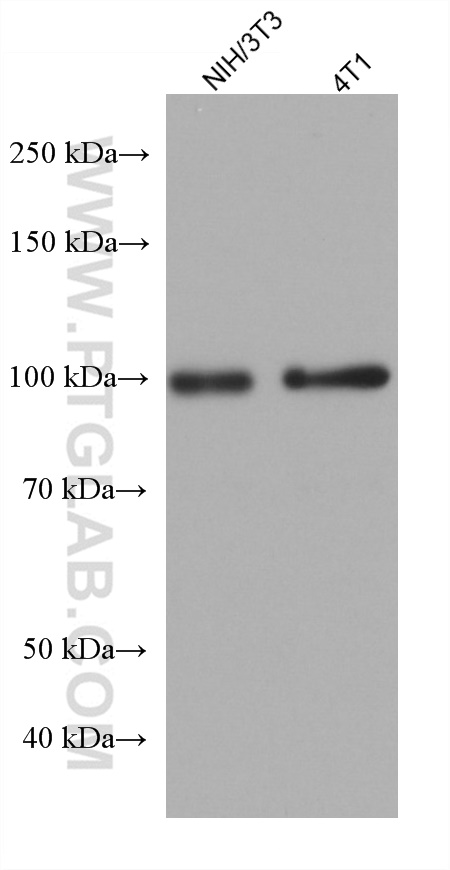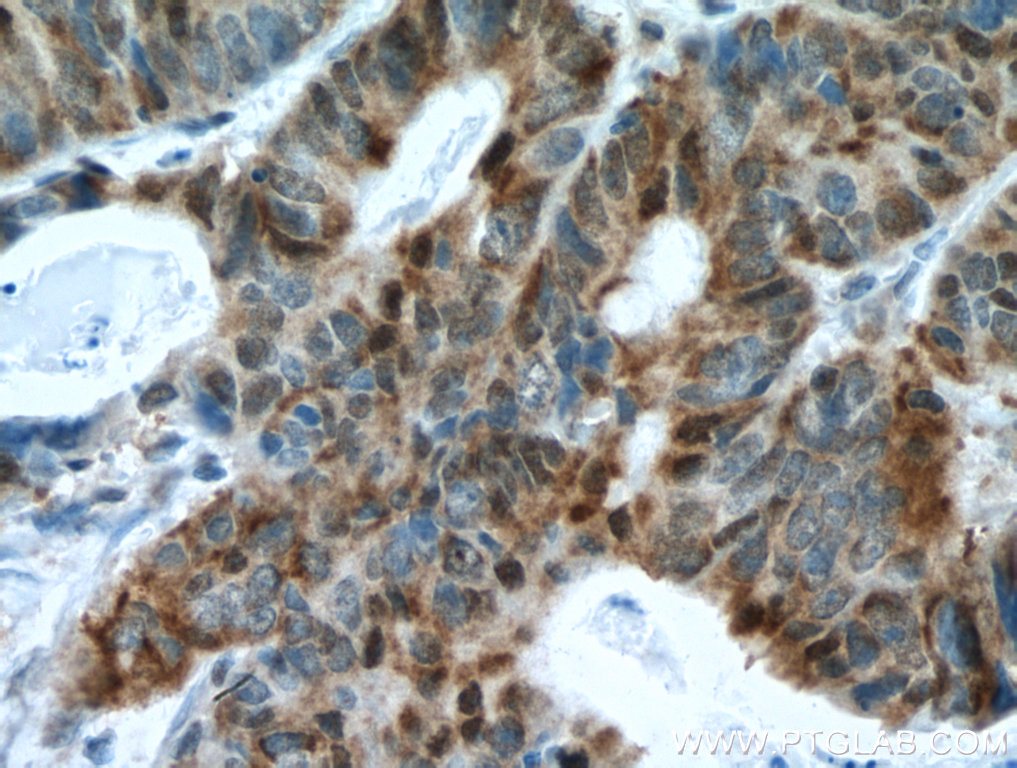验证数据展示
产品信息
67655-1-PBS targets NCAPH in WB, IHC, IF-P, ELISA applications and shows reactivity with Human, mouse, rat samples.
| 经测试应用 | WB, IHC, IF-P, ELISA Application Description |
| 经测试反应性 | Human, mouse, rat |
| 免疫原 | NCAPH fusion protein Ag27748 种属同源性预测 |
| 宿主/亚型 | Mouse / IgG1 |
| 抗体类别 | Monoclonal |
| 产品类型 | Antibody |
| 全称 | non-SMC condensin I complex, subunit H |
| 别名 | Barren homolog protein 1, BRRN, BRRN1, CAP H, CAPH, Condensin complex subunit 2, HCAP H, KIAA0074, NCAPH, XCAP H homolog |
| 计算分子量 | 741 aa, 83 kDa |
| 观测分子量 | 83-100 kDa |
| GenBank蛋白编号 | BC024211 |
| 基因名称 | NCAPH |
| Gene ID (NCBI) | 23397 |
| RRID | AB_2918495 |
| 偶联类型 | Unconjugated |
| 形式 | Liquid |
| 纯化方式 | Protein A purification |
| UNIPROT ID | Q15003 |
| 储存缓冲液 | PBS only , pH 7.3 |
| 储存条件 | Store at -80°C. The product is shipped with ice packs. Upon receipt, store it immediately at -80°C |
背景介绍
Non-SMC condensin I complex subunit H (NCAPH) is one of the three non-SMC subunits in condensin I, which belongs to a recently defined superfamily of proteins termed kleisins. Another two non-SMC subunits, CAP-D2 and CAP-G, share a highly degenerate repeating motif known as HEAT repeat. Some studies show that each subunit is essential for viability and plays an important role in mitotic chromosome architecture and segregation. In recent years, researchers found that the high expression of NCAPH was associated with poor prognosis in patients with non-small cell lung cancer and prostate cancer. Downregulation of NCAPH inhibited the proliferation, migration, and invasion of several cancer cells significantly. Moreover, NCAPH was involved in the regulation of mature chromosome condensation and DNA damage. These data suggest that NCAPH may be a key carcinogen involved in the development and progression of human malignant tumors. ( PMID: 28300828, PMID: 33311486 )
